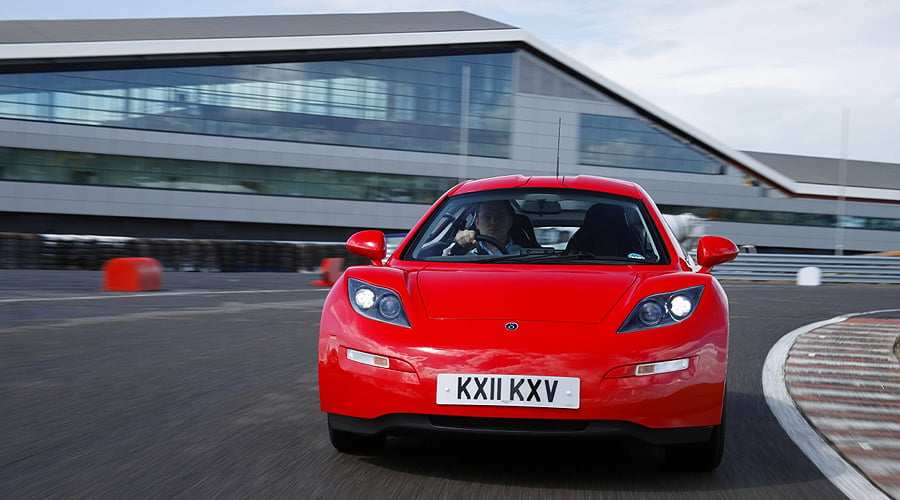
“Would you buy this car?” asks John Simister. The Delta E-4 Sport sounds almost too good to be true. It's an electric four-seater coupé with four-wheel drive, able to travel 200 miles on one charge, reach 150mph and hit 60mph in four seconds. Holy Electric Grails, Batman!
Well, currently it is too good to be true because it exists solely as a collection of data on a computer's hard drive. The figures stack up, apparently, but there's no physical proof just yet. However, the car you see here looks exactly the same: it exists in full composite flesh, and it works. Just not quite as groundbreakingly, for this is the Delta E-4 Eco as recently revealed to the press at Silverstone.
It will have to do for the moment. Or rather they will have to do, because there are currently five of them all built by Silverstone-based Delta Motorsport whose CV has included, among other things, building the entire grid of Grand Prix Masters racing cars.

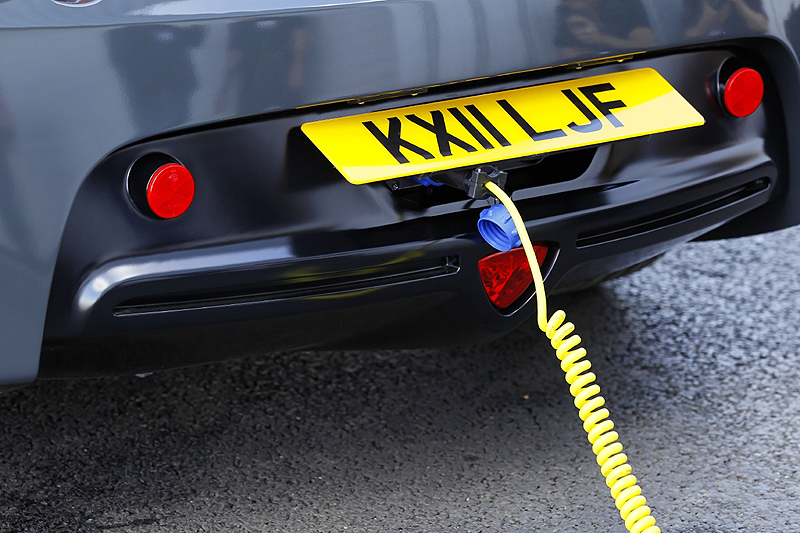
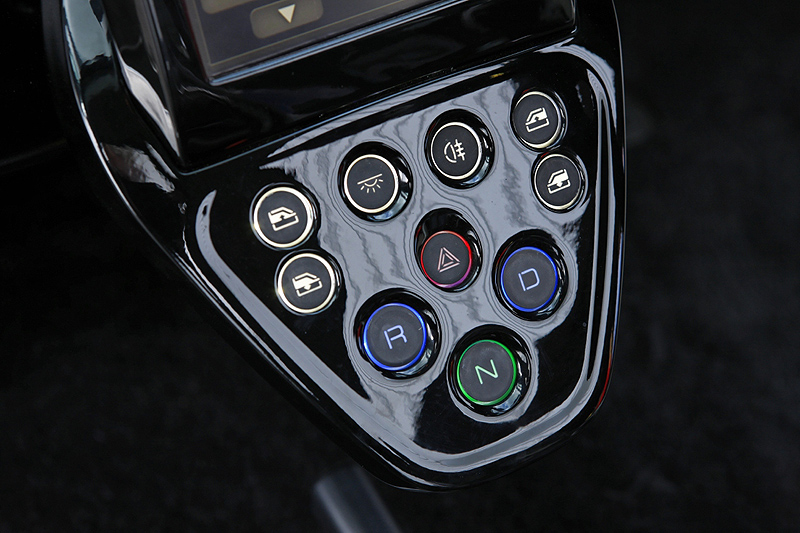
“Only five people have driven it so far,” says Delta managing director Simon Dowson as we gather opposite Silverstone's new Stowe complex, “and two of them are us.” His business partner is technical director Nick Carpenter. “The battery pack takes several charge and discharge cycles to settle out,” he says, “so the range is 110 to 120 miles at the moment. It improves each time.”
Driving the E-4 is undemanding, as usual with electric cars which have just a go pedal and a stop pedal, but entertaining too. It emits a whoosh like a distant jet engine as the motor is 'armed' by turning the key, and accelerates away with an instant, tyre-exercising vigour which makes the claimed 0-60mph time plausible. There's a central touch-screen display for any function which can manage without a physical switch (heating, navigation, mirror adjustment and the like), operating like a collection of smartphone apps, and a light, nimble response from the small steering wheel.
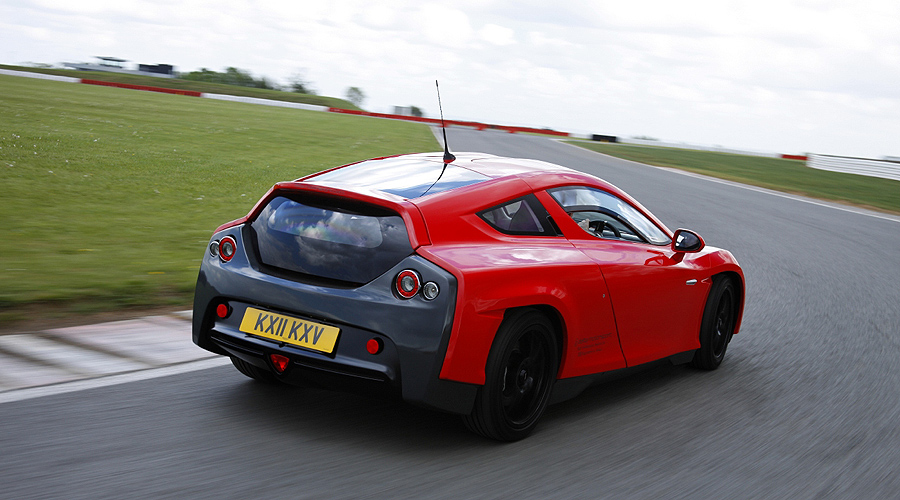
Out on the Stowe circuit section the Delta stays almost flat in the corners, brakes progressively with no detectable changeover point between electric regenerative braking and the physical, frictional variety, and feels very agile. The Ford Fiesta-sourced electric power steering self-centres poorly in this application, though, no doubt because of the lack of weight working against it, and feels oddly glutinous.
All this can no doubt be fixed. So, what happens next? Delta hasn't the resources to put the fully Type Approvable E-4 into production on its own. It has already used up grants from the East Midlands Development Association and the Technology Strategy Board, the latter keen to see engineering companies create viable electric demonstrator vehicles which Delta has achieved.
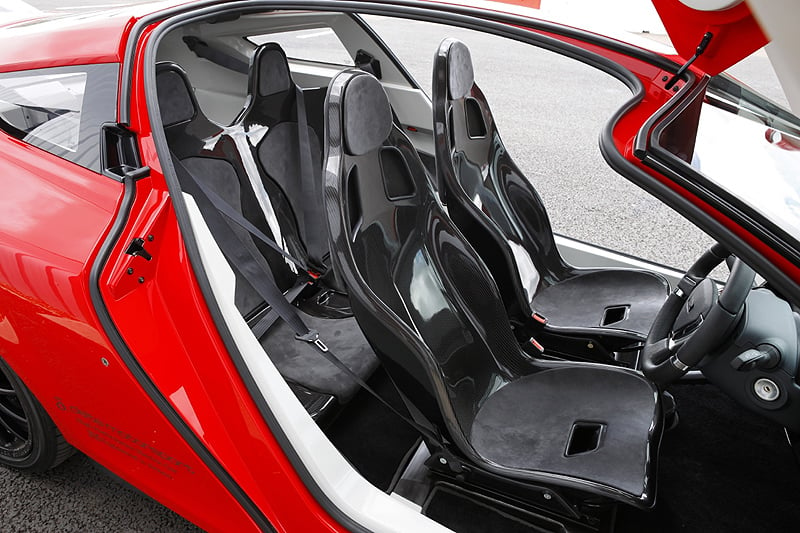
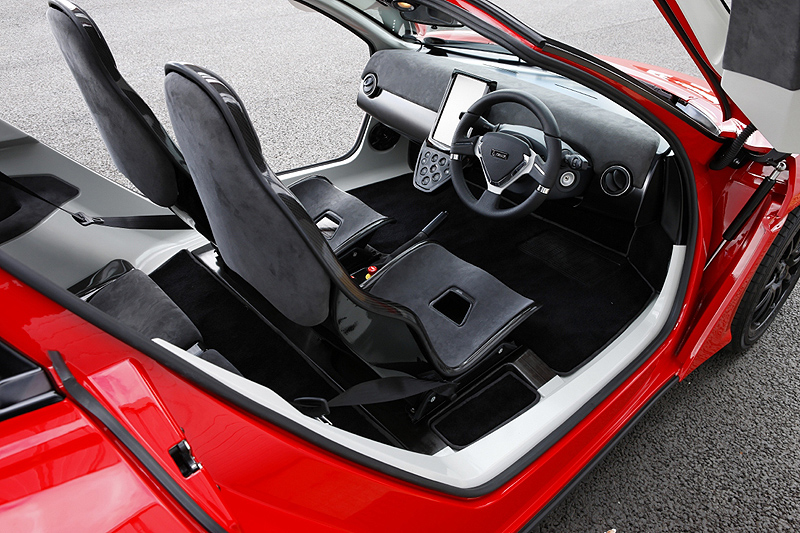
Which means that Delta is looking for investment partners, or maybe a joint deal with an existing carmaker seeking a green edge. The E-4 Eco could sell at around £60-70,000 if hundreds were made a year, or for much less if made at the rate of 15-20,000 a year which the construction technology is designed to allow. Its carbonfibre structure is designed to be made quickly and inexpensively, and itself points promisingly to how future mass-market cars might be made.
Nick Carpenter points out that the E-4 is constructed in much the same way as BMW's planned 'i' range of electric cars. Call it convergent evolution if you like, but it suggests the E-4 idea has potential if the funds can be found. Making those roof pillars a little slimmer might make it look a touch sexier, too…
For further information on the Delta E-4, see www.delta-motorsport.com.
Text: John Simister
Photos: Delta E-4
ClassicInside - The Classic Driver Newsletter
Free Subscription!







